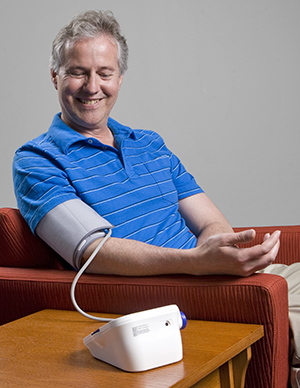Healthy Lifestyle to Prevent Another Stroke
Breaking old habits can be hard. But when your health is at stake, it’s never too late to make changes for the better. Some lifestyle changes might be easy for you. Others might be tough. So, if you need help, talk with your healthcare provider, family, and friends.
Make healthy changes
-
Diet. Your healthcare provider will give you information on dietary changes that you may need to make, based on your situation. Your provider may recommend that you see a registered dietitian for help with diet changes.
-
Weight management. If you are overweight, your healthcare provider will work with you to lose weight and lower your BMI (body mass index) to a normal or near-normal level. Making changes in your diet and increasing physical activity can help.
-
Stop smoking. If you smoke, the time to quit is now. There’s no more time for excuses. Smoking raises blood pressure and damages arteries. Both can lead to a stroke. To stop smoking, ask your healthcare provider for help. Join a stop-smoking program. Make a list of reasons to quit, including that you'll lower your risk of lung cancer, and read it daily.
-
Limit alcohol. Drinking too much alcohol can raise blood pressure and increase the risk for stroke. Alcohol can also react with certain medicines. Ask your healthcare provider if it’s safe for you to drink alcohol.
-
Get support. A stroke can leave you feeling frustrated or depressed. Don’t ignore your feelings, but don’t dwell on them either. Focus on what you can do. Talking to family, friends, your healthcare provider, or clergy can also help.
-
Reduce stress. Stress can make your heart work harder and raise blood pressure. To reduce stress, try to let go of daily annoyances. Ask yourself if problems will still matter a week from now. Getting enough rest can also help. Finally, don’t be embarrassed to ask for help when you need it.
-
Exercise. Strength and aerobic training improves your ability to function and do activities of daily living. It also reduces your risk for another stroke. Develop a custom plan with your physical therapist to meet activity goals.
If you have high blood pressure
One of the most important things you can do to prevent another stroke is to keep your blood pressure under control. If you have high blood pressure:
-
Take all your medicines as directed.
-
Get regular exercise. Try to work up to getting at least 40 minutes of moderate to high intensity physical activity at least 3 to 4 days each week.
-
Talk with your healthcare provider about limiting fat and salt in your diet. You most likely will be told to limit your salt intake to 2,400 milligrams (mg) or less each day.
-
Check your blood pressure regularly. Write down your numbers and bring them to checkups with your healthcare provider.

Manage other health problems
Strokes are often closely related to certain health problems. These include high blood pressure, heart disease, and diabetes. If you have any of these conditions, it’s more important than ever to keep them under control. Do this by taking any prescribed medicines and having regular checkups. Keep in mind, too, that the same healthy lifestyle choices that prevent stroke will also help control these health problems.
For family and friends
It’s much harder for your loved one to make lifestyle changes if they are feeling low. So be on the lookout for sadness, depression, or hopelessness. These feelings are common after a stroke. Talk with the healthcare provider if you have concerns.